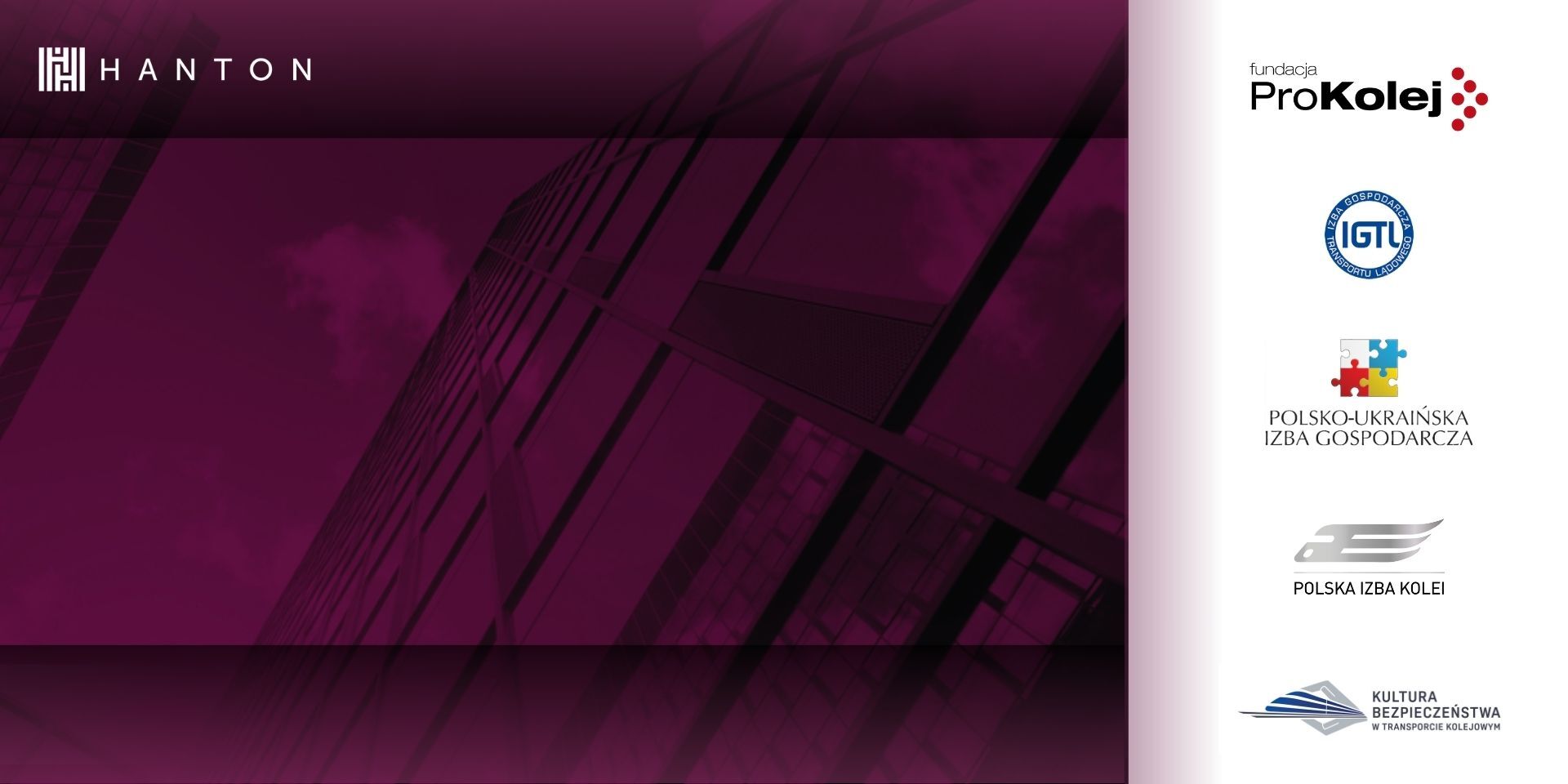
Infrastructure contracts valorization methods – legal perspective
Increasing inflation, difficulties in accessing construction materials, outflow of professionals to other countries, restrictions in access to fuels, increased fiscal burden, rising salaries of service providers, energy prices, as well as capital, insurance and leasing costs - these are just some of the reasons for the extraordinary increase in investment’s implementation costs. Growth that could not have been foreseen at the planning stage.
How can Contractors react to this price increase? There are several methods, which are briefly presented in the article below, and which are dedicated to extraordinary market situations. It should be assumed that we are currently struggling with such extraordinary situations...
Was it possible to predict the current change in economic relations?
The price increase is noticeable in almost every area of life. This phenomenon also influenced the infrastructure industry (railway, energy and development investments) affected by the increase in the prices of materials, raw materials (including steel and wood products, cement and asphalt), as well as the costs of specialized equipment renting and its operation. A comparison of the first quarter of 2022 with the first quarter of 2020 clearly shows that the increase in prices has amounted to almost 30%[1] in the last 2 years. But it is not at all certain that the costs will cease to increase at this level. Recently, the above-mentioned problems were also noticed and highlighted by the Polish Union of Designers and Engineers [PL: Związek Ogólnopolski Projektantów i Inżynierów] in a letter sent on May 26, 2022, to the President of the Council of Ministers [PL: Prezes Rady Ministrów] performing the tasks of the Minister of Finance[2].
Is the Contractor supposed to come to terms with the current reality and patiently execute the contracts for the implementation of investments concluded at a time when there was little indication of a future and such rapid increase in prices? However, is it more rational to terminate the contract or pay a contractual penalty and indicating a new investment based on new terms? These are difficult questions that require analysis concerning a specific legal and business situation.
What can the Contractor do?
The current regulations give Contractors several options.
Under civil law, one of the options is to use the so-called rebus sic stantibus clause regulated in art. 357(1) of the Civil Code, which entitles the court to interfere with the concluded contract. The clause applies only in exceptional situations, when due to an extraordinary change in terms, the performance of the contract would be associated with excessive difficulties or would result in gross loss to one of the parties, which the parties did not forecast when concluding the contract. According to the jurisprudence, an extraordinary change in terms may be e.g. hyperinflation[3], a sudden breakdown of the economic situation[4], failures, strikes, armed conflicts or acts of terrorism[5]. The above clause constitutes an independent basis for bringing an action to change the contract, and also allows the court its termination. A similar option is also provided for under a specific task contract with a flat rate remuneration (art. 632 § 2 of the Civil Code).
The possibility of changing the contract, when the subject of the service is a specific amount of money also gives art. 358 (1) of the Civil Code. However, it should be noticed that pursuant to art. 358(1) § 4 of the Civil Code the entrepreneur is only entitled to apply for a judicial termination of the contract, because only the consumer may demand a change in the amount or manner of performance.
It is also worth verifying previously concluded contracts, which may contain e.g. force majeure provisions or adaptation clauses. These provisions may either be automatically applied - that is, the mere existence of the circumstances to which they relate causes an appropriate correction of the content of the contract. Alternatively, the clauses may give the parties the option of renegotiating a previously concluded contract, provided both parties agree to it. The contract may also contain solutions enabling the contract to be adapted to the new conditions as part of the proceedings before the arbitrator. However, contractual clauses will only apply if the conditions set out in them are satisfied.
If the Ordering Party does not agree to change the contract, it may be necessary to pursue a civil action or turn to the institution of an arbitrator or mediator.
Character of contracts concluded under the PPL
More tools are provided for in contracts concluded under the public procurement law regime. First of all, the Public Procurement Law Act (the law currently in force) provides in art. 455, section 1, point 4 of the Public Procurement Law the possibility of changing the contract, if it is justified by circumstances which the Ordering Party, despite acting with due diligence, could not foresee. Among the examples of such circumstances, the jurisprudence mentions natural factors, but also acts of war and violent riots[6]. In such a situation, the price increase should not exceed 50% of the value of the original contract. What is more, this unpredictability should be objective, and the circumstances that arose cannot be caused by a lack of due diligence. Although so far this regulation has not been widely applied, the jurisprudence in this respect seems to speak in favor of the possibility of changing the remuneration included in the contract due to, inter alia, high inflation as a circumstance that the Ordering Party could not foresee[7].
A similar maximum amount of the remuneration increase, i.e. 50% of the original contract value, is also provided for in art. 15r, section 4 of the Act on special solutions related to the prevention, counteracting and combating COVID-19, other infectious diseases and the crisis situations caused by them. Pursuant to this act, the Ordering Party, in agreement with the Contractor, changes the contract, i.e. its due date, method of performance or the scope of the Contractor's performance, if the change in the amount of remuneration occurs as a result of circumstances related to the occurrence of COVID-19.
Secondly, art. 455, section 2 of the Public Procurement Law also gives the possibility to amend the contract without conducting a new procurement procedure, the total value of which is less than the EU thresholds and is less than (i) 10% of the original contract value, in the case of service or supply contracts, or (ii) 15%, in the case of construction works contracts. These adjustments cannot alter the overall nature of the contract. The above case constitutes a separate condition for the amendment of the contract, and no additional condition is required for its implementation.
In the case of contracts concluded for a period longer than 12 months, art. 436, point 4, letter b), indent 5 of the Public Procurement Law among the contractual provisions, provides for the introduction of an indexation clause, which is to specify the rules for introducing changes in the amount of remuneration, when these changes will affect the costs of contract performance by the Contractor. The Ordering Party is obliged to specify in the contract at least the circumstances in which the remuneration may be subject to change and the procedure leading to the determination of the amount of this change and the date of its introduction. This provision is absolutely binding, so its application may not depend on the will of the parties[8] to the contract. Withdrawal from the contract and payment of contractual penalties resulting therefrom may sometimes be a last resort. In some situations, such a solution may turn out to be more beneficial than its further implementation.
Market ideas to solve the problem
Recently, there have been some ideas on what changes to introduce in order to improve the situation of participants in investment processes, and above all, the Contractors. There is an idea circulating among developers to introduce a clause valorizing the price of an apartment. Such a clause would include a provision according to which the purchase price of an apartment should include the costs of labor and construction materials, calculated on the basis of price change indices in construction and assembly production, published by the president of the Statistics Poland [PL: Główny Urząd Statystyczny]. Furthermore, when the investment is completed and the purchase price of the apartment increases significantly, the customer would be able to withdraw from the sales contract[9].
On the other hand, in the area of public procurement, the legislator is planning to introduce changes. According to the preliminary assumptions, the draft act would provide for a permanent indexation of remuneration for Contractors in investments carried out under public procurement[10]. However, this proposal is at a very early, conceptual stage.
The solution enabling the introduction of greater flexibility to the contract is the introduction of indexation clauses (which still does not constitute a standard in all sectors of the economy), according to which the indexation would be made on the basis of an objective indicator, e.g. the consumer price index published monthly by the Statistics Poland [PL: Główny Urząd Statystyczny], HCIP (Harmonized Indices of Consumer Prices) published by EUROSTAT, or the average salary in the enterprise sector without profit payments.
The currently used in rail and road contracts the so-called “Sub-Clause 13.8 Adjustments for Changes in Cost”, which provides for the following complicated formula, cannot withstand the current price increase and does not constitute a real remedy for Contractors' problems.

The approach of the Ordering Parties to the use of clauses provided for in the contracts still remains of key importance. It can be different - depending on the Client. According to publicly available information, in 2020, on the basis of the same valorization clauses, GDDKiA paid Contractors for tasks included in the National Road Construction Program the amount of PLN 235 million and 668 thousand net. In the same period, PKP Polskie Linie Kolejowe paid its Contractors only PLN 11 million net for valorization...
Summary
The current micro and macroeconomic, political and fiscal situation has significantly increased investment costs, also in the rail, energy and road sectors. This resulted in a significant reduction in the profitability of Contractors resulting from contracts concluded before changes in prices and costs. As part of the possibility of changing the amount of remuneration and other contract conditions, Contractors may use several procedures that allow negotiating currently unfavorable contracts.
In the current situation, leaving Contractors without aid may generate massive contract cancellations and failure to implement planned investments. As it turns out in practice, currently used solutions in legal acts will not fulfill their functions and lead to serious disturbances on the market of infrastructure investments, with negative consequences both for Contractors (these effects are visible almost immediately) and, in the medium term, for the Ordering Parties.
[1] See „Raport o kosztach w budownictwie 2016-2021 ze szczególnym uwzględnieniem wpływu pandemii COVID-19 w okresie 2020-2021” and its continuation, i.e. „Raport o kosztach w budownictwie, wskaźniki dla I kwartału 2022 roku” - both reports prepared by CAS sp. z o.o.
[2] See „Odezwa Związku Ogólnopolskiego Projektantów i Inżynierów w przedmiocie waloryzacji kontraktów na nadzór i projektowanie” of May 26, 2022, letter No. 20220526/1/ZOPI/KPRM
[3] See the judgment of the Appeal Court in Gdańsk as of October 13, 1992, file No. I ACr 407/92, Wok. 1993, No. 9, p. 28
[4] See the judgment of the Appeal Court in Wrocław as of January 24, 2013, file No. I ACa 1362/12
[5] See art. 3571 of the Civil Code, vol. II ed. Gutowski 2022, ed. 3 Mataczyński/Saczywko
[6] See the judgment of the Supreme Administrative Court as of May 26 2017, file No. II GSK 3710/15
[7] See the judgment of the Supreme Court as of November 20, 2008, file No. III CSK 184/08
[8] See the art. 436 of the Public Procurement Law, ed. Jaworska 2022, ed. 3/M. Jaworska
[9] A. Ogonowska-Rejer, „Mieszkanie w budowie. Czy deweloper może podnieść cenę”, Rzeczpospolita, April 27, 2022, https://pieniadze.rp.pl/budzet-rodzinny/art36163281-mieszkanie-w-budowie-czy-deweloper-moze-podniesc-cene [accessed on June 14, 2022]
[10] [10] M. Rzemek, A. Woźniak „Budowy dróg będą bardziej opłacalne. Rząd chce zrekompensować inflację”, Rzeczpospolita, May 1, 2022., https://www.rp.pl/transport/art36216871-budowy-drog-beda-bardziej-oplacalne-rzad-chce-zrekompensowac-inflacje [accessed on June 14, 2022]
Newest articles
-

HANTON Law Firm participates in the Energy Committee as part of its membership in the Polish-Ukrainian Chamber of Commerce
07-03-2024Last week we had the pleasure of participating in a meeting of the Energy Committee organized by the Polish-Ukrainian Chamber of Commerce at the Targowa | Targowa Creativity Center.
-

HANTON law firm a member of the Chamber of Commerce for Land Transport
29-02-2024We are pleased to announce that last week we joined another chamber of commerce - IGTL - thus becoming an official member. We are extremely pleased that the group of member companies to which we belong is constantly growing!
-

HANTON Law Firm a member of the Polish-Ukrainian Chamber of Commerce
22-02-2024It is now official - the law firm HANTON Szalc Zięba & Partners has joined the Polish-Ukrainian Chamber of Commerce. We are looking forward to working with the members of the PUIG, as this is another step for us in establishing and developing valuable international business relations.
-

Article by legal advisor Michal Zięba Regulatory bottlenecks or
15-02-2024We recommend reading the article by legal advisor Michał Zięba, Managing Partner of HANTON on Regulatory bottlenecks in railway legislation. This article has been compiled as a compilation of a few selected thoughts from ongoing legal activities on behalf of clients.
-

HANTON was a speaker at the Energy PL conference held as part of ENEX
14-02-2024On 7-8 February 2024, the XXVI ENEX International Trade Fair for Power and Electrical Engineering and Renewable Energy Sources took place in Kielce. This is the most important and largest event in the RES sector in Poland, organised for 25 years.